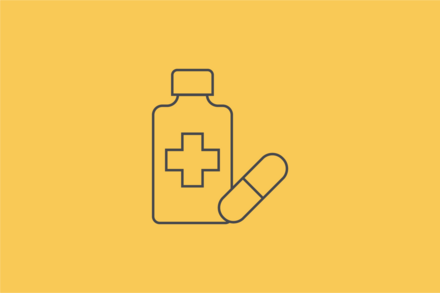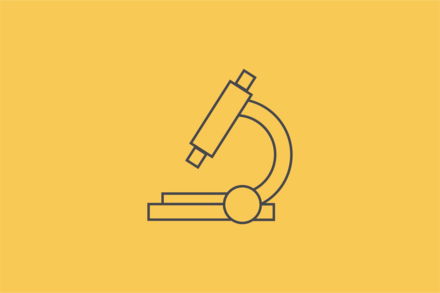Antibiotics save many millions of lives every year. Increasing resistance is threatening to blunt these miracle weapons against deadly infections - and humans themselves are to blame. If antibiotics become less effective, many medical treatments such as cancer therapies, organ transplants, knee replacements and new kidneys will become much riskier. It is up to us to preserve the effectiveness of antibiotics for the future. In line with the One Health concept, we monitor antibiotic resistance in humans, animals and the environment.
What are antibiotics?
Antibiotics are important prescription drugs for the treatment of bacterial infectious diseases in humans and animals. Antibiotics specifically interfere with the metabolism of bacteria or damage their cell wall. This inhibits the growth of bacteria or kills them. As viruses do not have their own metabolism and utilise the host cells to multiply, antibiotics are not effective here. It is therefore not possible to treat viral infections such as colds or flu with antibiotics.
How does resistance develop?
Bacteria can adapt quickly and thus find a way to escape the effects of antibiotics. They become resistant to certain antibiotics. These antibiotics are no longer effective. The more antibiotics are used, the sooner resistance occurs and the more resistant bacteria can spread. Bacteria can exchange genetic material with each other and pass on resistance in this way. The situation becomes critical when bacteria have acquired resistance to several antibiotics - in this case we speak of multi-resistance.

How should I take antibiotics?
The success of antibiotic therapy depends on the correct selection of an antibiotic that is effective against the respective pathogenic bacteria, as well as on the correct dosage and the required duration of administration.
Antibiotics should therefore always be taken as prescribed by your doctor:
- Only take antibiotics if they have been prescribed by your doctor
- Adhere to the specified intake times
- Take the antibiotic for as long as prescribed by your doctor. If you feel better again, this does not mean that all pathogens have been killed. Therefore, do not stop taking the antibiotic on your own
- Never take antibiotics that have been prescribed for other people and do not give your antibiotics to other people
Remember that taking antibiotics unnecessarily not only contributes to the development of resistance, but also damages your beneficial bacterial flora (skin and intestinal flora).

How are medicines disposed of correctly?
Leftover antibiotics should not be kept for later use. However, they must not be disposed of in the residual waste, in the toilet or in the compost. There are three options for correct disposal:
- the hazardous waste collection centre
- handing them in at the pharmacy
- In Vienna, you can also dispose of it at a rubbish tip
Observe the expiry date stated on the packaging: this applies to unopened medicines. Once opened, creams, ointments and drops only last a few weeks. Please unpack medicines before disposing of them: cartons, package inserts and jars should be disposed of with waste paper or glass. Tablets can remain in the blister packs.

Tips for the household
A germ-free home is neither feasible nor desirable. On the contrary, excessive measures with disinfectants and antibacterial cleaners can contribute to the spread of resistant germs.
- Use ordinary household cleaners for cleaning, no antibacterial agents and no disinfectants
- To prevent a biofilm from forming in the washing machine (a layer of slime to protect the bacteria embedded in it), a hot wash cycle of at least 60 degrees should be run once a week
- The same applies to the dishwasher, which should also be run occasionally at a minimum of 60 °Celsius
- Use different cleaning cloths for the kitchen, bathroom and toilet. The cleaning cloths should be washed at a minimum of 60 °Celsius. If mops and similar items are dried quickly and in an airy environment, this also reduces the germ load. Bacteria spread better in a damp environment.
Disinfectants should only be used where they are necessary, for example in healthcare facilities or wherever people with a compromised immune system need to be protected.
And there is another exception: Namely, when someone in the household is already suffering from an infectious disease. Here, disinfectants - used correctly - can help to break the chain of infection.

How can antibiotic resistance be avoided/reduced?
We are all jointly responsible for ensuring that antibiotics remain effective.
- Take antibiotics as prescribed by your doctor
- Do not dispose of antibiotics in the environment (sink, toilet, compost, etc.) or in household waste. Expired antibiotics must be handed in at the pharmacy or at a hazardous waste collection centre
- Get vaccinated to prevent infectious diseases
- Pay attention to hygiene to prevent the development of infections (food preparation, hand washing, refrigerator)
- Antibiotics are not effective against viral infections. In addition, many banal infections heal themselves without the use of antibiotics (colds, coughs, diarrhoea, many throat and ear infections). Use antibiotics responsibly
Last updated: 20.11.2024
automatically translated

